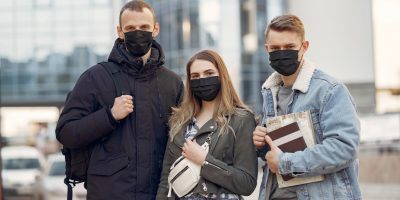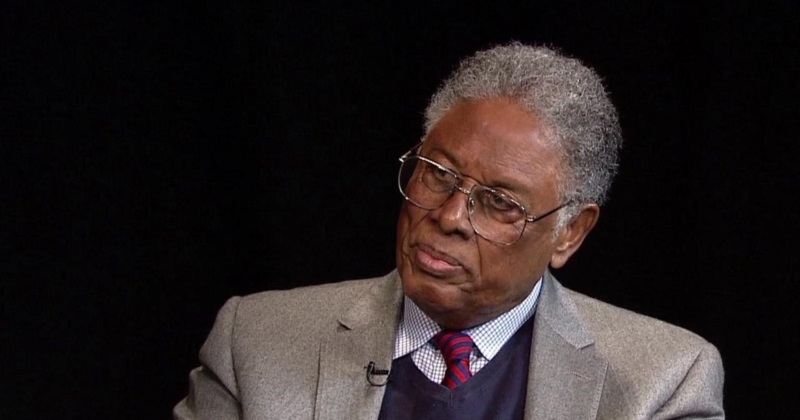At the Crossroads of the Corona Crisis: The “Chicago School”. What It Really Is and Why It Matters

All Global Research articles can be read in 27 languages by activating the “Translate Website” drop down menu on the top banner of our home page (Desktop version).
***
[A] return to normalcy will require subduing radical factions that agitate for oppression. Restrictions such as mask mandates are like oxygen to followers of radical fundamentalist Covidianism — the abiding belief that only lockdowns, social distancing, and masks can deliver us from the deadly pandemic. The longer mandates stay in place and experts continue promoting mask use — “My mask protects you! Your mask protects me!” — the stronger and more widespread the extremism will grow, and the less influence experts will have over their behavior. Georgi Boorman, The Federalist, 22 September 2020
Non-objective law is the most effective weapon of human enslavement: its victims become its enforcers and enslave themselves. Ayn Rand, The Nature of Government
***
Universities and colleges are working to adapt and respond to a mix of information, signals and intentions concerning the Covid phenomenon, especially involving what conditions will be imposed in order to fully “re-open” (the assumption that a state of normalcy will greet everyone at the other end of current “lockdown” and other related “orders,” is not reasonable).
Those have fairly significant policy implications that may range from screening, testing and vaccination (increasingly seen as “at gunpoint”), to tracing, profiling and tracking, among other authoritarian methods under consideration, including “health passports.”
The modern university campus may eventually resemble the modern airport in how students, faculty, staff, alumnae and visitors are processed, screened and approved for entry onto the campus and its facilities. The scope of such institutional reactions will be comprehensive, as the reputational stakes are thought high: divergent thinking, or a challenge to consensus, is often deemed dangerous, conspiratorial, or even sociopathic.
Indeed, universities believe they face a heavy hammer of government intimidation and sanctions, in addition to nearly unlimited private legal action, if risks are not seen as managed within the expectations that have been set through repeated conditioning. Indeed, “Coronavirus” has now taken its place in what I call the campus “Ideological Iron Square” that consists of terror, race, climate and covid. These phenomena are most fundamentally centered in fear: Such fear conditioning and response has led to an effective cult formation that has been termed “Branch Covidianism.”
It is also no coincidence that covid and partisan politics are thematically mixed together. Covid has provided a full spectrum of pretexts that range from changing state election rules, reinforcing absentee voting liberties, and voter ID relaxation. But beyond election politics, Covid has also created an entire “world view” of social engineering. In the University of Chicago’s case, this new view was put forth by its original founding family, and its Rockefeller Foundation, whose 2010 white paper “Future Scenarios” was fascinatingly prescient, if even outright prescriptive:
During the pandemic, national leaders around the world flexed their authority and imposed airtight rules and restrictions, from the mandatory wearing of face masks to body-temperature checks at the entries to communal spaces like train stations and supermarkets. Even after the pandemic faded, this more authoritarian control and oversight of citizens and their activities stuck and even intensified. In order to protect themselves from the spread of increasingly global problems — from pandemics and transnational terrorism to environmental crises and rising poverty — leaders around the world took a firmer grip on power. At first, the notion of a more controlled world gained wide acceptance and approval. Citizens willingly gave up some of their sovereignty — and their privacy — to more paternalistic states in exchange for greater safety and stability. Citizens were more tolerant, and even eager, for top-down direction and oversight, and national leaders had more latitude to impose order in the ways they saw fit. In developed countries, this heightened oversight took many forms: biometric IDs for all citizens, for example, and tighter regulation of key industries whose stability was deemed vital to national interests. In many developed countries, enforced cooperation with a suite of new regulations and agreements slowly but steadily restored order. The Rockefeller Foundation, Future Scenarios, 2010
In the context of higher education, various government agencies have effectively adapted and reconfigured their priorities and objectives: the CDC (Center for Disease Control) and the largely captured World Health Organization (WHO) have together become a de facto Department of Education, as it meters out its information and judgments that universities are waiting on (raising an interesting question as to whether there is really a “private” university with its own legal Charter and Articles).
But there’s more to the CDC’s sudden intrusion into higher education: a large-scale social experiment is underway—explicit or an effect—that is pitting one student group against another. It is turning our college campuses into a “Lord of the Flies” island, and the results can be dangerous in several dimensions including morally and psychologically.
It works precisely against intellectual independence, and against the fundamental purpose and aspiration of higher education (as Nietzsche said in The Dawn, “The surest way to corrupt a youth is to instruct him to hold in higher esteem those who think alike than those who think differently”). This dynamic also works toward a subtle prompting of obedience and reward: “Humans intuit the in-group/out-group dynamic. We are sensitive to lines drawn between insiders and outsiders and, whether consciously or subconsciously, modify our behavior to fit the mold of the inside group. If outsiders can be convinced that the “insiders” in society get vaccinated, they are more likely to adopt conforming behavior as a result” (from Social Engineers Use Weaponized Psychology to Push Unproven Vaccines). Group consensus will create pressure to conform.
Consensus political behavior is also reinforced by other institutional influences. Organized campus political interests and actors—including the overhanging influences of the largely inept “radical-socialist” Chicago alumnae trio of Obama, Sanders and Lightfoot whose ideology is propagated by David Axelrod’s Institute of Politics (IOP)—also distort the larger campus political culture, and reinforce the covid narrative, as it encapsulates the Left’s state-centered designs and strategy. Axelrod has otherwise inserted the IOP on campus as an effective student indoctrination and Democratic National Committee (DNC) campaign center that, while hosting occasional ‘contrarian” opinions, carefully advances a very mainstream DNC institutional framework and agenda, while Axelrod himself is an active public relations and media agent disseminating strategic partisan positioning and often, hyperbole.
The “Chicago School” of Inquiry
Standing in the middle of all of the complex information flows between health and politics that are emanating from institutions, private interests and media, are the students themselves (and their families). How can they make sense of it all? In the case of the University of Chicago, it has historically advanced a philosophy of inquiry that focuses on facts and data, and openly looks for disconfirming or inconvenient information–the “Chicago School” of inquiry.
The term has otherwise been variously described (and abused) over the years, but it boils down to an unusually healthy skepticism, combined with determined curiosity directed at uncovering facts and data that confirm or falsify an assertion or hypothesis.
This applies across all the arts, and all the sciences, including social. But it’s not only an analytic frame of mind; it’s an intuitive and even spiritual aspect as well. Alongside all of Chicago’s famous Nobel physicists and economists, stand its humanitarians like writers Saul Bellow, Hannah Arendt, Leo Strauss or Kurt Vonnegut, who knew what oppression was, and embodied an instinctive rebellion that is also part of the “Chicago School,” as is the pragmatist philosophy of Richard Rorty, or the jurisprudence of Robert Bork.
Freedom fighters all. The Chicago School, from my experience as a Booth student, is also at its center, an economic and political philosophy that advances a general belief in individual autonomy and free markets, over collectivism and institutions. This isn’t just ideological, but pragmatic: free individuals who are freely associating, tend to economically outperform collective bodies that are collectively managed.

Thomas Sowell and Milton Friedman: University of Chicago Ph.D (’68) and Stanford economist Thomas Sowell nicely describes through his many interviews and books what such a school meant to him. He relates how coming to UChicago from Harvard, for example, changed his life. His Chicago advisor, Nobel economist Milton Friedman (author of “Free To Choose”), and the larger Chicago research culture he was a part of, upended his own generally Marxist belief structure. At Harvard, he said, professors and students generally made economic determinations framed in opinion, ideology, and mere assertion. When he came to Chicago, he was asked to actually prove them, and to be willing to do so in a “gloves off” intellectual fight where such questions are pursued as a “contact sport.” Humans, with their ability for abstract thought, also share or transmit information with intentions. Those intentions are necessarily subject to discovery, and until discovered, such informational veracity must be treated as tentative.
Is the “Chicago School” philosophy still equally alive today? What happened to Chicago’s famed intellectual defiance? What would Friedman, Arendt, Vonnegut, or Strauss think about state biosecurity policy, or the avalanche of eyewitness testimony concerning voting manipulation stemming from the DNC and its financial syndicate that used this biosecurity as a pretext to change voting procedures? It’s hard to say given institutional, financial and cultural pressures to “normalize the abnormal.” But one thing is likely: their personification of skepticism, rebellion, relentless questioning and reasoned consideration with facts and experience, might provide a lasting model of thought and conduct. Such a philosophy is not indestructible. It is ultimately reliant on individuals, not institutions, and comes with a demand for personal resolve and intellectual integrity in the face of many pressures and conflicts.
As Kant said, Sapere aude. Dare to think.
*
Note to readers: please click the share buttons above or below. Forward this article to your email lists. Crosspost on your blog site, internet forums. etc.
This article was originally published on Dissident Proof.
Matt Andersson is a science and technology professional, a graduate of the University of Chicago, and the author of the upcoming book “Legally Blind: How Ideology Has Captured the Law School, the Judiciary, and the Constitution.”
All images in this article are from Dissident Proof

